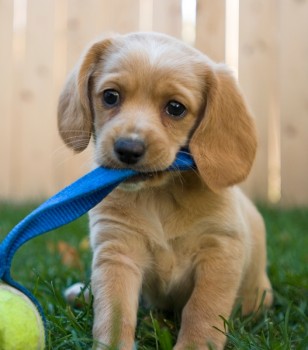 If you’ve decided to purchase a dog rather than adopting from a shelter, your next job is to begin interviewing breeders. Wondering what questions should you ask before buying your dog?
If you’ve decided to purchase a dog rather than adopting from a shelter, your next job is to begin interviewing breeders. Wondering what questions should you ask before buying your dog?
10. How many breeds do you handle? Any breeder that doesn’t specialize in fewer than a handful of breeds is likely more interested in profit than quality.
9. How many litters do you produce each year? Unless the breeder has an extremely large operation, you shouldn’t expect the breeder to produce more than one or two litters a year. In all cases, there shouldn’t be more than one litter per adult female per year.
8. What are the most important traits you select for? First and foremost, your breeder should be looking for healthy puppies. After that, he or she should be concentrating on traits that match your goals for the dog. If you will be showing your dog, the breeder should be focused on traits important in the show ring such as preferred colors. For working dogs, the breeder should be trying to improve on qualities like his line’s prey drive (hunters), “eye” (herders), or speed (racers). For family dogs, temperament is key.
7. How many litters have you already produced? Although everyone has to start with a first litter, an established breeder will have more in-depth knowledge of which genetic traits are present in his breeding stock, and with careful record-keeping can produce consistent results in the traits he is looking for.
6. What awards have your puppies won? Again, this is specific to the goals you have for your puppy. If you are looking for a show dog or a sports star, you will want previous puppies from the breeder to have achieved champion status. See if the breeder usually takes the pick of each litter to further his or her own show or sporting career. If the breeder cannot tell you where previous puppies have ended up, you would not want to buy anything other than a companion puppy from the operation.
5. Can I tour your kennel? A reputable breeder will have no problem showing you his or her kennel. You are looking for general cleanliness, cage space vs. free-ranging areas (the more open space the better for socialization and general health), environmental awareness such as temperature control and fresh water, and comfort (no wire bottom cages, no overcrowding).
4. Are both parents on-site? Before you buy any puppy, you need to be able to see BOTH parents. Just about any breeder can show you the mother, as the puppies are likely not totally weaned at the time deposits are solicited. A really good breeder should also have the proud papa on site for your inspection. You are looking for signs of disease as well as show qualities, temperament, or sporting skills.
3. How do you provide for the health of your puppies? There is nothing wrong with a breeder that provides simple health care for his or her own puppies. In fact, it is the most economical way to breed. However, if the breeder will be taking care of worming, shots, and other basic health care, you will want to see careful record-keeping. If the breeder will be handling things like docking tails, removing dew claws, shaping ears, or other minor surgical procedures, ask to see the area where these procedures are performed. You are looking for general cleanliness as well as the means to sterilize equipment, provide treatment under humane conditions, and prevent infection.
2. How do you evaluate temperament? An experienced breeder will be concerned with matching your family to the proper dog, rather than simply getting rid of all of the puppies as quickly as possible. There are several different means of assessing temperament, and your breeder should be knowledgeable about at least one of them.
1. What contractual requirements do you have for adoption? Some breeders will insist that dogs who don’t work out with a specific family be brought back to the breeder – an important concern if you are buying from an operation far from your home. Others insist on fenced yards, references, or other conditions you will need to be aware of and prepared for before you take a puppy home.
Until next time,
Good day, and good dog!
